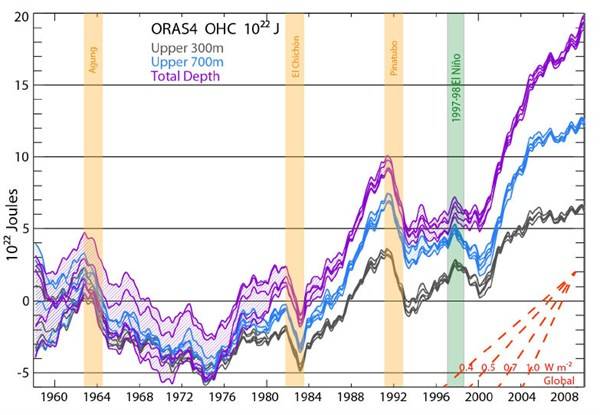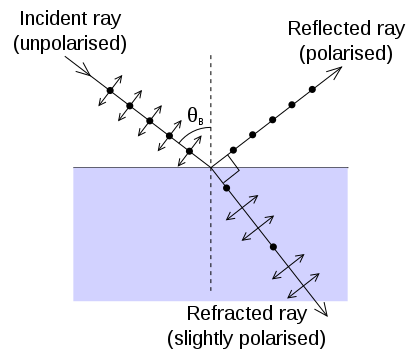Even if you set aside AGW, the acidification of the oceans due to billions of tons per year of CO2 being released into the atmosphere will ensure that we will notice. It's already happening.
From what I have read, we have an astounding 75 year time horizon before that acidification has any real impact on the ecology.
That does not justify the hysteria one iota. Further, damaging the economy to the extent that many of the alarmists calls for would not help un in that case. We need a strong economy to fund the research and the infrastructure that will be required to deal with this problem if we are ever to do so.
Another fact is that rising economies like China are not going to take this problem on and that is a fact. Sure, they pay a lot of lip service to it BUT when it comes down to actions, they are severely lacking. We cannot control the worlds CO2 emissions.
"From what I have read", then no link to anything you have read. Bullshit statement.
Damaging the economy in what way? Another bullshit statement with nothing at all to back it up.
Interesting, the rising economies are actually investing a bigger percentage of the income in alternatives than we are.
But, back to what you have read on ocean acidification. Here is what real scientists write on that subject;
Impacts of ocean acidification on marine fauna and ecosystem processes
Abstract
Fabry, V. J., Seibel, B. A., Feely, R. A., and Orr, J. C. 2008. Impacts of ocean acidification on marine fauna and ecosystem processes. – ICES Journal of Marine Science, 65: 414–432. Oceanic uptake of anthropogenic carbon dioxide (CO2) is altering the seawater chemistry of the world’s oceans with consequences for marine biota. Elevated partial pressure of CO2 (pCO2) is causing the calcium carbonate saturation horizon to shoal in many regions, particularly in high latitudes and regions that intersect with pronounced hypoxic zones. The ability of marine animals, most importantly pteropod molluscs, foraminifera, and some benthic invertebrates, to produce calcareous skeletal structures is directly affected by seawater CO2 chemistry. CO2 influences the physiology of marine organisms as well through acid-base imbalance and reduced oxygen transport capacity. The few studies at relevant pCO2 levels impede our ability to predict future impacts on foodweb dynamics and other ecosystem processes. Here we present new observations, review available data, and identify priorities for future research, based on regions, ecosystems, taxa, and physiological processes believed to be most vulnerable to ocean acidification. We conclude that ocean acidification and the synergistic impacts of other anthropogenic stressors provide great potential for widespread changes to marine ecosystems.
And these guys actually tested the hypothesis with real critters and found that all that hype is BS. The result is thicker shells instead of thinner ones, contrary to the fraudsters hyperbole. And, more to the point they used acidic levels FAR higher than could ever be experienced in the real world. In other words, acidification is a sham.
Title:
Phytoplankton Calcification in a High-CO2 World
Authors:
Iglesias-Rodriguez, M. Debora; Halloran, Paul R.; Rickaby, Rosalind E. M.; Hall, Ian R.; Colmenero-Hidalgo, Elena; Gittins, John R.; Green, Darryl R. H.; Tyrrell, Toby; Gibbs, Samantha J.; von Dassow, Peter; Rehm, Eric; Armbrust, E. Virginia; Boessenkool, Karin P.
Affiliation:
AA(National Oceanography Centre, Southampton, University of Southampton Waterfront Campus, European Way, Southampton SO14 3ZH, UK.), AB(Department of Earth Sciences, University of Oxford, Parks Road, Oxford OX1 3PR, UK.), AC(Department of Earth Sciences, University of Oxford, Parks Road, Oxford OX1 3PR, UK.), AD(School of Earth, Ocean and Planetary Sciences, Cardiff University, Main Building, Park Place, Cardiff CF10 3YE, UK.), AE(School of Earth, Ocean and Planetary Sciences, Cardiff University, Main Building, Park Place, Cardiff CF10 3YE, UK.), AF(National Oceanography Centre, Southampton, University of Southampton Waterfront Campus, European Way, Southampton SO14 3ZH, UK.), AG(National Oceanography Centre, Southampton, University of Southampton Waterfront Campus, European Way, Southampton SO14 3ZH, UK.), AH(National Oceanography Centre, Southampton, University of Southampton Waterfront Campus, European Way, Southampton SO14 3ZH, UK.), AI(National Oceanography Centre, Southampton, University of Southampton Waterfront Campus, European Way, Southampton SO14 3ZH, UK.), AJ(Station Biologique de Roscoff, Place George Teissier, BP 74, 29682 Roscoff Cedex, France), AK(School of Oceanography, Box 357940, University of Washington, Seattle, WA 98195, USA.), AL(School of Oceanography, Box 357940, University of Washington, Seattle, WA 98195, USA.), AM(School of Earth, Ocean and Planetary Sciences, Cardiff University, Main Building, Park Place, Cardiff CF10 3YE, UK.)
Publication:
Science, Volume 320, Issue 5874, pp. 336- (2008). (Sci Homepage)
Publication Date:
04/2008
Category:
OCEANS
Origin:
SCIENCE
DOI:
10.1126/science.1154122
Bibliographic Code:
2008Sci...320..336I
Abstract
Ocean acidification in response to rising atmospheric CO2 partial pressures is widely expected to reduce calcification by marine organisms. From the mid-Mesozoic, coccolithophores have been major calcium carbonate producers in the world’s oceans, today accounting for about a third of the total marine CaCO3 production. Here, we present laboratory evidence that calcification and net primary production in the coccolithophore species Emiliania huxleyi are significantly increased by high CO2 partial pressures. Field evidence from the deep ocean is consistent with these laboratory conclusions, indicating that over the past 220 years there has been a 40% increase in average coccolith mass. Our findings show that coccolithophores are already responding and will probably continue to respond to rising atmospheric CO2 partial pressures, which has important implications for biogeochemical modeling of future oceans and climate.
http://adsabs.harvard.edu/abs/2008Sci...320..336I






